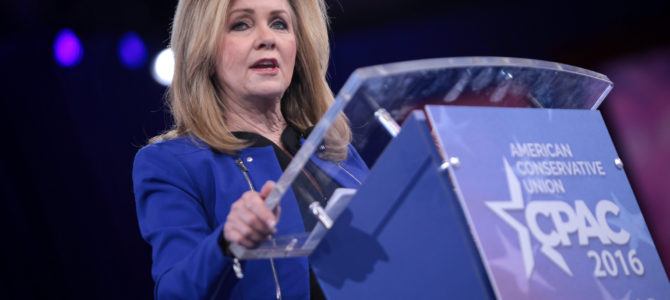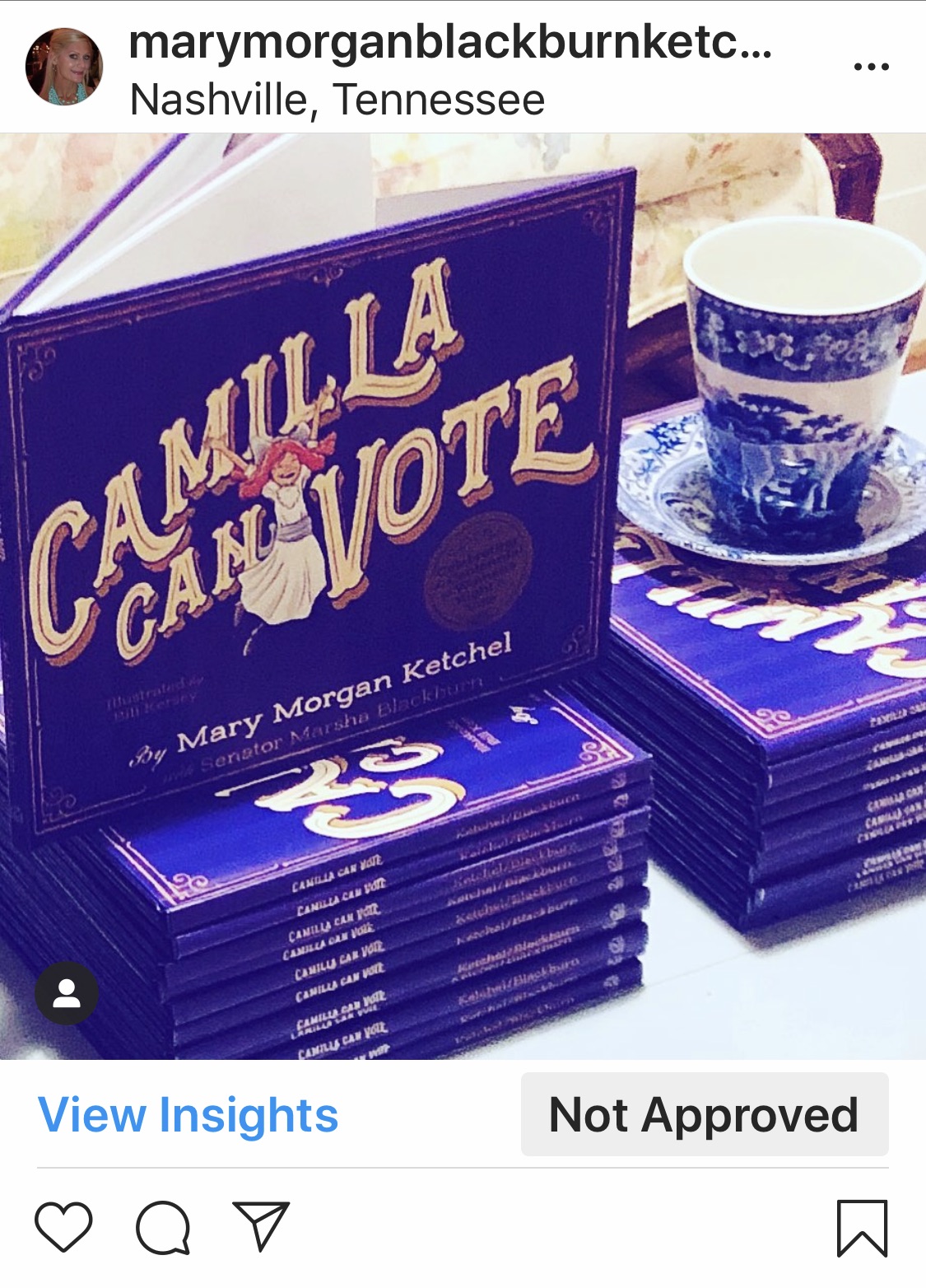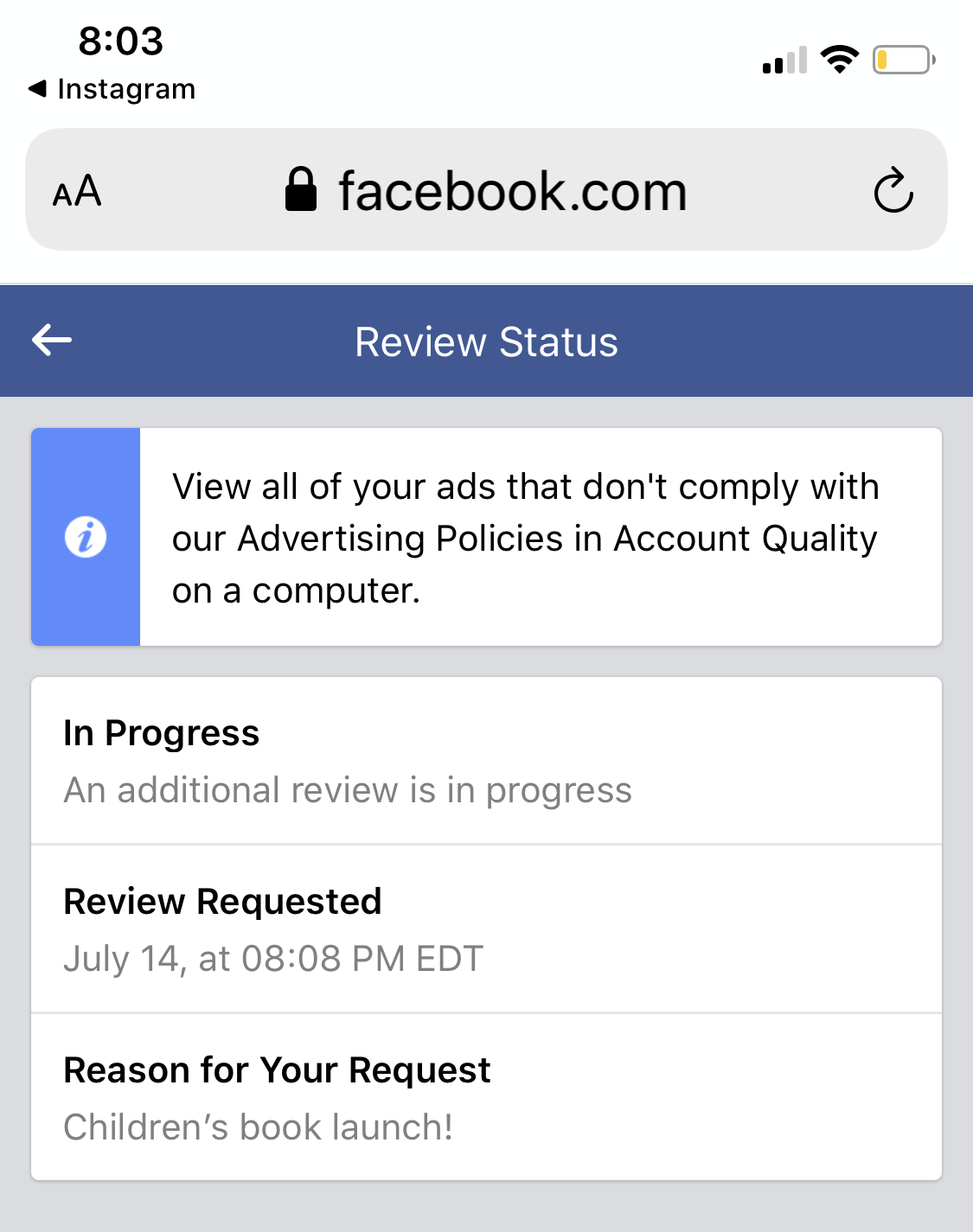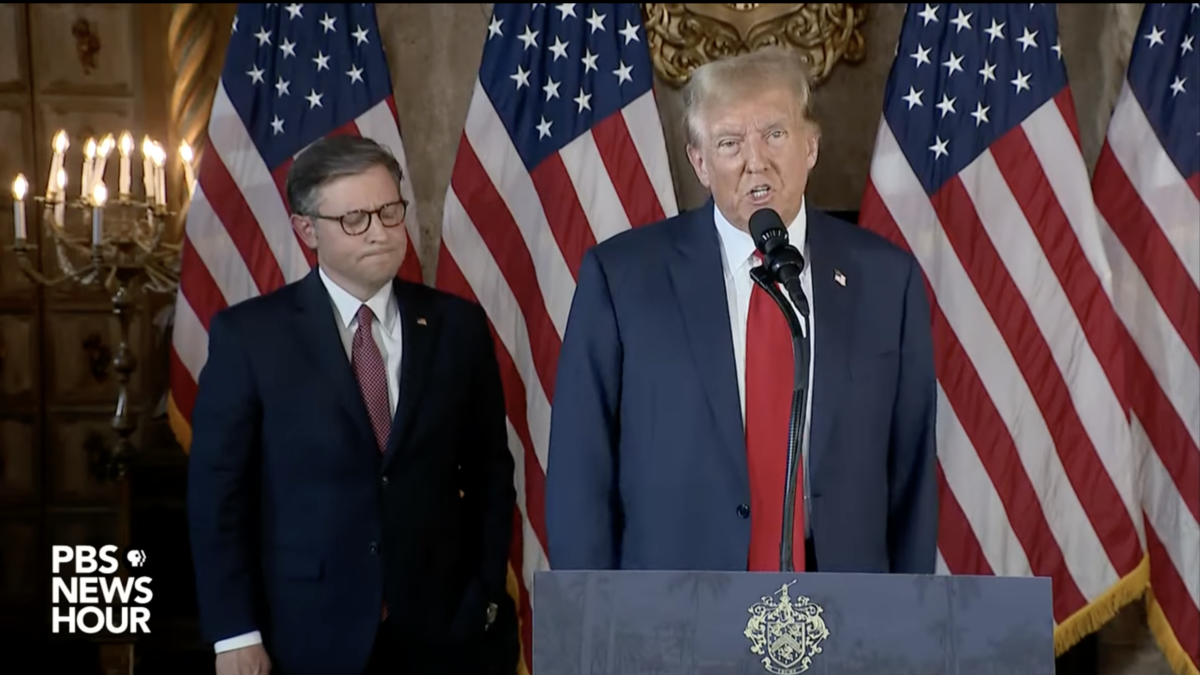
After blocking a new children’s book from Tennessee Republican Sen. Marsha Blackburn and her daughter, Mary Morgan Ketchel from being promoted on the platform twice, Instagram appeared to ban the book’s promotion again on the day of the launch.
On Tuesday, a third ad posted on the site to kick off the biggest day for the book was pulled down from the site shortly after it was published garnering more than 100 views.
“I posted our launch yesterday morning and they basically paused its viewership,” Ketchel told The Federalist. “There was all of this engagement and all of a sudden after a couple of hours it just dropped off dead. I don’t believe that they let anybody see it after they realized it was me.”
Meanwhile the book, titled “Camila Can Vote: Celebrating the Centennial of Women’s Right to Vote,” enjoyed booming traffic on Amazon maintaining its number one spot for new releases in Children’s 1900s American Historical Fiction as the co-authors promoted their project with online livestreams and interviews throughout the day which likely would have upped the engagement with their ad on Instagram.
Screenshots shared exclusively with The Federalist show the ad review was still “in progress” by 8 p.m. eastern when Ketchel requested an update on her appeal.


“I am advertising a children’s book and I want to be able to utilize social media to do so,” Ketchel said. “I’m able to reach people that I would not ordinarily reach, and that’s why I’m trying to utilize it… With book stores closed across the country, this is really the way I’m able to sell my book.”
To Ketchel and Blackburn’s frustration, Instagram had already twice blocked the book before, and while each time the social media company ultimately approved its promotion, initial censorship impeded progress on its rollout, keeping eyes from seeing the project that otherwise might benefit from its purchase such as parents, schoolteachers or librarians.
Instagram cited the book’s potential to “influence the outcome of an election, or existing proposed legislation,” as reason for prohibiting its first two rounds of ads but granted their approval following Federalist reporting even after denying Ketchel’s appeals multiple times.
The book, however, tells the tale of Tennessee’s role in becoming the final state to pass women’s suffrage through the lens of a schoolgirl’s trip to a museum and has nothing to do with contemporary political events.
“It’s history, and it’s a children’s book. It’s a bright, colorful, exciting children’s format of historical fiction,” Ketchel said. “It’s mean to connect a young reader with the history of the women’s movement.”
A company spokesperson told The Federalist in May that the book was flagged on the platform in error after the first time it was censored.
“We have policies in place to ensure ads transparency around political ads and given the senator was a co-author, it’s reasonable it was flagged but upon review, political ads authorization is not necessary,” the company wrote in a May email.
The company said last week after the second time its promotion was blocked, Facebook, which owns Instagram said it was “taking steps to hopefully prevent another instance of this.”
When the book was first blocked on the platform in May, Instagram approached Blackburn’s office to request Ketchel register her personal account as a political group or influencer as if she were operating as a political action committee or campaign. Ketchel however, who boasts an account with few more than 1,200 followers rejected the idea the she must be registered as a political influencer for merely promoting a children’s book with her mother’s name attached.
“I’m a mom, I’m a blogger, and now I’m a children’s book co-author… I am not a political group.”
Ketchel worried that by registering her personal account as a political group based on her mother’s role in the Senate, she would be subjected to heightened censorship on anything else she were to post.
“I am not going to go through a process to identify myself as a political group and open myself up to this kind of targeting for as long as I should have a social media presence,” Ketchel said.
Given recent attempts by big tech to suppress conservatives online including her mother, it’s a legitimate concern.
In 2017, Twitter pulled down a Blackburn campaign ad as she launched her successful Senate bid while she was still serving in the House after they deemed it “inflammatory.”
.@Twitter shut down our video ad, claiming it's "inflammatory" & "negative." Join me in standing up to Silicon Valley → RETWEET our message! pic.twitter.com/K3w4AMgW6i
— Marsha Blackburn (@VoteMarsha) October 9, 2017
Twitter ultimately reinstated the video following conservative backlash.
Last month, Google threatened to demonetize The Federalist over content in its comment sections despite Google-owned YouTube’s comment sections infamous reputation for hosting some of the most nefarious comment sections on the entire internet.
Google’s recent threat of censorship prompted higher scrutiny from Washington lawmakers including Blackburn, a longtime proponent to break up big tech who also chairs the Senate Judiciary Committee’s Tech Task Force.
Beware the power of Big Tech to cancel conservative voices. @Google chokes off ad revenue to @FDRLST and ZeroHedge to silence conservatives.
We can’t let Google get away with anticompetitive conduct or bully competitors and consumers into submission.
— Sen. Marsha Blackburn (@MarshaBlackburn) June 17, 2020
Facebook said the latest round of censorship was also made in error and is “continuing to take steps to hopefully prevent another instance of this.”









